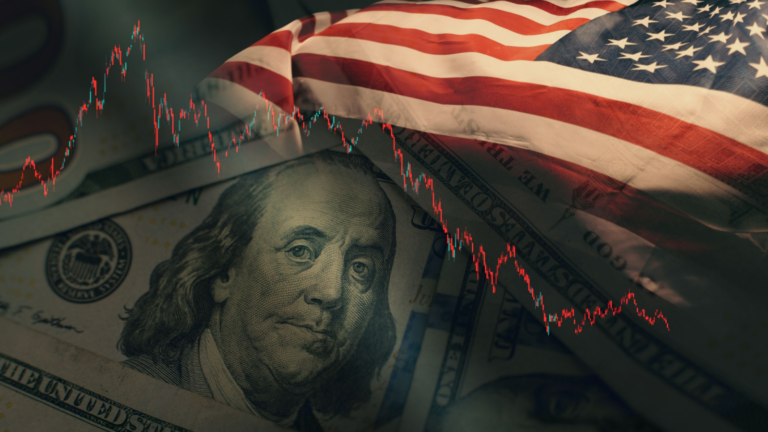Even as other investment banks prep for an economic downturn following the release of the July jobs report, UBS just lowered the chance of recession. Indeed, a team of UBS economists led by Pierre Lafourcade just lowered the Swiss bank’s estimated recession probability from 60% to 53%, which itself is a reduction from the 75% probability just a year ago.
“Has the data taken a turn for the worse to the extent of walking back to our initial call? Our recession probability models continue to show elevated recession risk, but the probability has actually come down somewhat recently,” UBS said.
Is the Chance for Recession Higher or Lower Now?
UBS’ lowered recession probability comes as other investment banks raise their respective estimated recession chance. Both Goldman Sachs and JPMorgan raised their recession probabilities last week, taking into account the result of the July jobs report and possible stock market panic following the unwinding of the Japanese yen carry trade.
JPM raised its probability of a recession before 2024 ends from 25% to 35%. Similarly, Goldman raised its recession probability from 15% to 25%.
Not for nothing, the July jobs data was notoriously weak. The U.S. economy recorded unemployment of 4.3%, its highest level in years, as the country added just 118,000 jobs. It also represented the third straight month of rising unemployment. With interest rates still elevated, many analysts assumed the data hinted at a more malicious slowdown to come.
“This modest increase in our assessment of recession risk contrasts with a more substantial reassessment we are making to the interest rate outlook,” noted Goldman economists led by Jan Hatzius on Sunday.
The data also confirmed that the Federal Reserve is nearly guaranteed to lower interest rates at the upcoming September policy meeting. This would boost economic growth and fend off rising unemployment.
On the date of publication, Shrey Dua did not hold (either directly or indirectly) any positions in the securities mentioned in this article. The opinions expressed in this article are those of the writer, subject to the InvestorPlace.com Publishing Guidelines.
On the date of publication, the responsible editor did not have (either directly or indirectly) any positions in the securities mentioned in this article.

